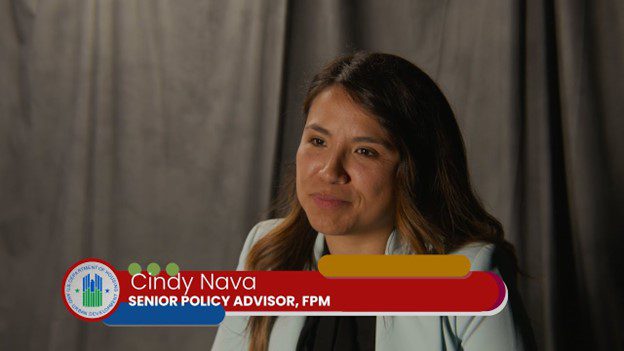In New Mexico, a troubling pattern has emerged where election laws are being manipulated or outright ignored, allowing unqualified candidates to remain on the ballot. These oversights and legal breaches are not confined to one political party or a single office. Both election officials and the courts have been complicit in allowing candidates to stay on ballots despite legal violations, undermining public trust in the process. This investigative report dives into several recent cases and legal changes that have compounded the issue of election integrity in the state.
2024: Robert F. Kennedy Jr.’s Ballot Placement Despite Residency Violations
In 2024, Robert F. Kennedy Jr. was placed on the general election ballot in New Mexico, despite a ruling by the New York Supreme Court that he did not reside at his listed address in New York. The court determined that Kennedy had been primarily residing in California since 2014, making his New York registration fraudulent. This should have disqualified him under NMSA 1978, Section 1-8-32, which criminalizes the falsification of nominating petitions.
Initially, Kennedy’s address was erroneously listed as “84 Croton Lake Rd, Katonah, New Mexico”—an obvious mistake. However, even after this error was corrected, Kennedy remained on the general election ballot, despite other candidates being disqualified. In left-leaning states, polling shows that Kennedy’s presence on the ballot will hurt the Republican Donald Trump’s candidacy. Toulouse Oliver previously announced her hatred for Trump, raising concerns over whether her political vendetta is behind her decision to ignore state law and the court’s ruling further undermining the public’s confidence in the electoral process.
2024: Cindy Nava: Clerical Error or Manipulation?
The Robert Kennedy case is not the only instance where politically connected candidates have seemingly received special treatment. Cindy Nava, a former Senior Policy Advisor in the Biden administration, and a Dreamer who worked at the U.S. Department of Housing and Urban Development (HUD), is running for New Mexico Senate District 9. Her campaign was marred by legal challenges when her nominating petitions incorrectly listed her residence in Bernalillo County rather than Sandoval County.
According to NMSA 1978, Section 1-8-30, such errors should result in the disqualification of a candidate. However, despite two lawsuits filed against her, the courts ruled that the error was merely clerical, allowing Nava to remain on the ballot. The fact that both the district court and the New Mexico Supreme Court ruled in her favor suggests that Nava’s political connections, particularly her ties to the Biden administration, may have influenced the decision. The leniency shown in Nava’s case stands in stark contrast to how other candidates without such connections have been treated, raising concerns about judicial impartiality and election fairness.
Judge Allison Martinez set a precedent that undermines the strict residency requirements the law was designed to enforce.
The court’s decision excused what was clearly a violation of the statute, raising further questions about how election laws are being enforced—and whether certain candidates are being protected through leniency that does not extend to others.

2023 Legislative Changes: SB 180 and the Codification of Illegal Address Use
In 2023, the New Mexico Legislature passed SB 180, a bill that effectively codified the use of vague or incorrect addresses on nominating petitions under the guise of “safety” concerns. This amendment, introduced by Republican Senator Mark Moores, allowed candidates to shield their actual addresses from public view, preventing the public from verifying their residency. This change has made it easier for candidates to obscure their legal standing under NMSA 1978, Section 1-8-18 (B), which requires candidates to live in the district they are running to represent.

Critics argue that SB 180 is a dangerous step backward for election transparency, as it allows for unchecked manipulation of residency requirements. The public can no longer confirm whether a candidate lives in the district, and this legal loophole is being used by both parties to protect politically connected candidates. The timing of this bill’s passage, followed by its use in the Nava case, signals a coordinated effort to undermine the clear residency laws previously enforced in New Mexico.
2022: The Case of Mayna Erika Myers, Lea County Clerk and Secretary of State Oversight
In 2022, Mayna Erika Myers ran for the position of New Mexico Secretary of State, despite having moved out of the state prior to the primary election. According to NMSA 1978, Section 1-8-18 (B), candidates must meet residency requirements, and it was clear Myers did not. This should have disqualified her from running, but Lea County Clerk Keith Manes, who had disqualified Myers in a previous race, failed to act when she ran for statewide office. Myers remained on the ballot through both the primary and general elections, accumulating tens of thousands of votes.
This failure to act represented a direct violation of New Mexico law, contributing to voter mistrust in the system. Manes had the authority to object to Myers’ candidacy based on residency, but his inaction resulted in an unqualified candidate influencing the election’s outcome. The lack of enforcement of basic election laws sent a message that those in power were not held to the same standards as the voters themselves.

Complicity on Both Sides
What makes these cases particularly concerning is that these issues are not confined to one political party. While the Nava ruling benefited a Democrat, the amendment to SB 180 was introduced by a Republican. The judge in Nava’s case, Allison Martinez, is also a Republican. The passage of SB 180, coupled with selective enforcement of election laws, shows that the manipulation of New Mexico’s election process is a bi-partisan issue.
This growing leniency and disregard for the law from both sides have compounded the problem, allowing unqualified candidates to stay on the ballot and creating an uneven playing field. Voters are left to wonder whether their voices matter in a system where rules are bent to benefit those in power.
The Consequences of a Broken System
The failure to consistently enforce election laws, combined with legislative changes that obscure transparency, has contributed to rising voter apathy in New Mexico. Voters are increasingly frustrated with an election system that seems rigged to benefit insiders, while regular citizens are left in the dark. When high-profile candidates are allowed to remain on the ballot despite clear legal violations, it sends the message that the rules only apply to some, further eroding trust in the democratic process.
Low voter turnout in New Mexico’s recent elections is a symptom of this larger problem. Voters feel disillusioned by a system that appears manipulated, with little recourse for holding those responsible accountable. As officials and courts continue to excuse violations under the guise of “clerical errors” or “safety concerns,” the integrity of New Mexico’s elections remains at risk.
Conclusion
New Mexico’s election system is at a critical juncture. The cases of Mayna Erika Myers, Robert F. Kennedy Jr., and Cindy Nava, combined with the legislative changes enacted through SB 180, reveal a system that is increasingly susceptible to manipulation. If election laws are not enforced equally, and if officials and courts continue to allow unqualified candidates to remain on the ballot, the public’s trust in elections will only further deteriorate.
The New Mexico Department of Justice and State Ethics Commission must investigate these incidents, and reforms must be enacted to restore transparency and accountability in New Mexico’s elections. Without these changes, the future of the democratic process and our republic is in jeopardy. Both political parties must be held accountable for their roles in undermining the integrity of elections, and voters must demand a return to the rule of law.
As of this article’s publication Secretary Toulouse-Oliver has not responded to a request for information regarding any steps she may be taking to remedy this matter.
Email to SOS re Robert F. Kennedy on the New Mexico Ballot
For further reading and updates on these ongoing issues, I recommend the article from Estancia News here.
- Opinion | SB 218—New Mexico’s Promise Made, Promise Broken - February 24, 2025
- New Mexico’s Supreme Court Ignores Rights and Restricts Who Can Hear Election Cases - January 9, 2025
- Progressive Blueprint: How EMERGE’s Legislative Surge is Poised to Reshape New Mexico - January 6, 2025


